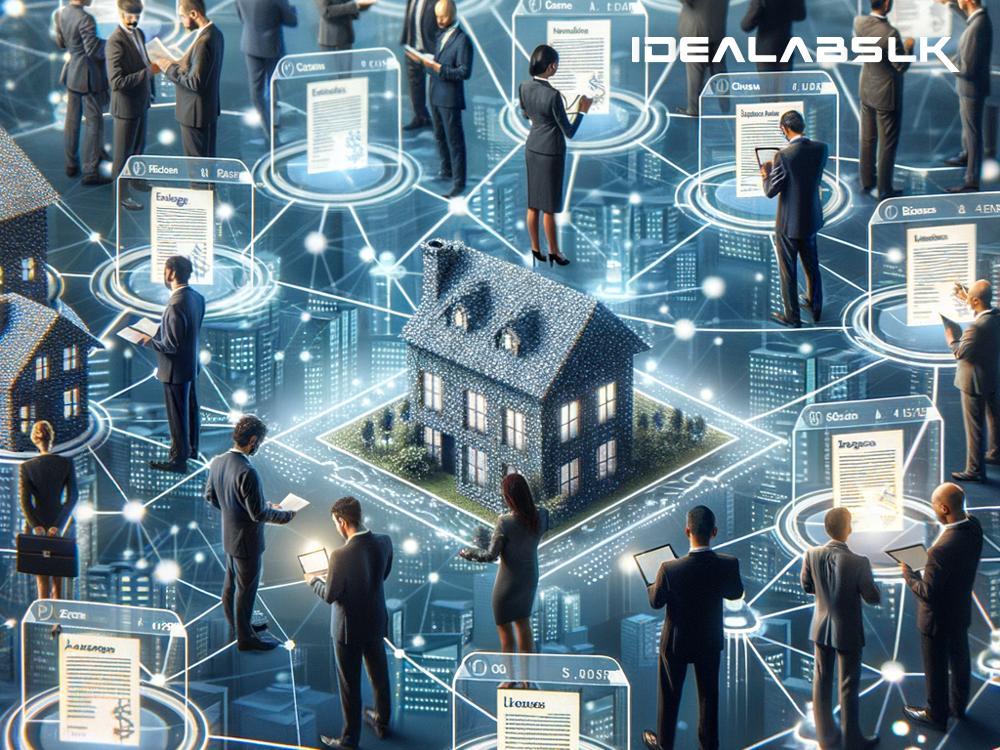The Future of Property Deals: Blockchain in Real Estate Revenue Models
In the whirlwind of the 21st century, technology has been the star of the show, shaking up industries from healthcare to finance. But there's one sector it's been transforming quietly yet significantly: real estate. With the advent of blockchain technology, the way we buy, sell, and manage properties is poised for a makeover, especially in how it unlocks new revenue models. Let's break down this complex topic into simpler bits, so you can understand how blockchain is redefining the game in real estate.
Understanding Blockchain in Simple Terms
Before we dive deep, imagine a ledger or a record book that's not kept in one single place but is duplicated thousands of times across a network of computers. This ledger updates itself every ten minutes in a way that is transparent and tamper-proof. That's blockchain in a nutshell. It's the technology behind cryptocurrencies like Bitcoin, but its potential spans far beyond, touching fields such as real estate.
The Traditional Real Estate Scenario
Traditionally, buying or selling a property involves a multitude of steps and participants including agents, banks, lawyers, and government registries. It's a process that's not only time-consuming but also opaque at times, making it ripe for disruption.
How Blockchain is Changing the Game
Blockchain introduces a level of transparency, efficiency, and security previously unseen in the real estate sector. Here are three revolutionary ways blockchain is reshaping real estate revenue models:
- Tokenization of Assets
Imagine being able to buy a piece of a property much like you would buy stocks in a company. This is what tokenization offers. Through blockchain, physical assets like buildings can be divided into digital tokens that represent shares in the property. This lowers the entry barrier for investors, enabling people to invest in real estate with far less money than would have been required traditionally. It also opens up a global market, where anyone from anywhere can invest in properties around the world with just a click.
- Smart Contracts
These are self-executing contracts with the terms of the agreement written directly into code. In real estate, this means that contractual processes, payments, and deeds can be automated, reducing the need for intermediaries. This makes transactions faster, cheaper, and more efficient. For instance, rental agreements can automatically transfer rents to the landlord without the need for a manual process, or property sales can be executed automatically once all conditions are met, slashing weeks or even months off the closing times.
- Enhanced Liquidity and Diversification
Blockchain enables real estate assets to be easily bought, sold, and traded, much like stocks on an exchange. This increased liquidity makes it easier for investors to enter and exit positions, potentially leading to a more dynamic and responsive market. Additionally, the ability to purchase fractional shares in properties allows investors to spread their investments across multiple properties, decreasing risk and increasing portfolio diversification.
Real-World Impacts and Future Prospects
Cities and countries around the globe are already experimenting with blockchain in real estate. From tokenized properties in Europe to blockchain-based land registries in parts of Africa and Asia, these initiatives are proving that the future is bright—and highly efficient—for real estate transactions.
As blockchain technology matures, we can expect its adoption in real estate to move from innovation to common practice. This transition will not only democratize access to real estate investment but also introduce a new era of transparency and efficiency in property transactions.
Moreover, with the integration of other technologies like AI and IoT (Internet of Things), blockchain could further revolutionize property management, making buildings smarter and more responsive to their inhabitants' needs while providing owners with real-time data to optimize their revenue.
In Summary
Blockchain in real estate is not just a fancy buzzword—it's a transformative technology that's reshaping how property transactions are conducted and how revenue models are built. By enabling tokenization, automating transactions with smart contracts, and enhancing liquidity and diversification, blockchain provides a fresh perspective on property investment and management.
As we stand on the cusp of this technological revolution, one thing is clear: the future of real estate looks brighter, smarter, and more inclusive, thanks to blockchain. For investors, homeowners, and industry professionals, understanding and embracing this change could very well be the key to unlocking new opportunities in the ever-evolving world of real estate.

